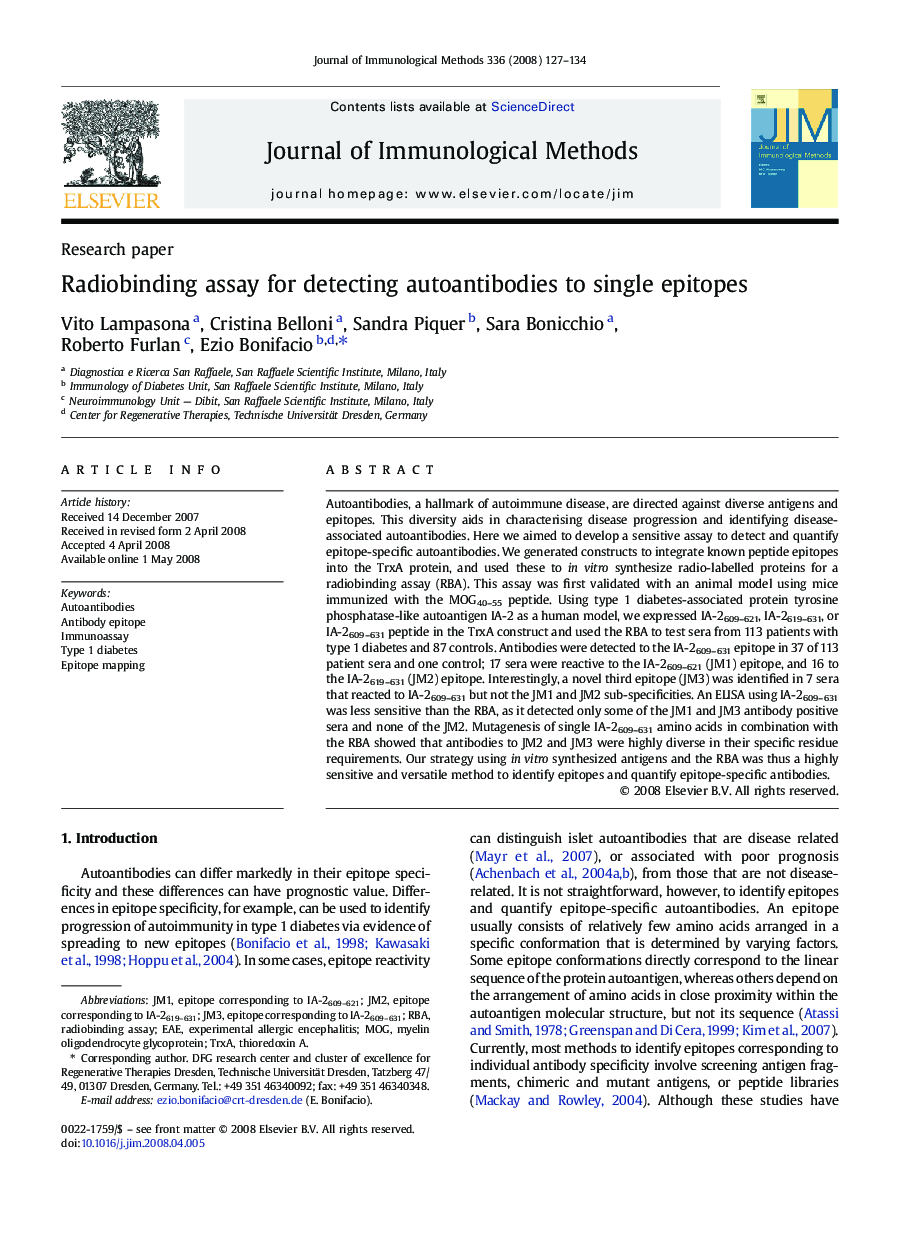| Article ID | Journal | Published Year | Pages | File Type |
|---|---|---|---|---|
| 10889325 | Journal of Immunological Methods | 2008 | 8 Pages |
Abstract
Autoantibodies, a hallmark of autoimmune disease, are directed against diverse antigens and epitopes. This diversity aids in characterising disease progression and identifying disease-associated autoantibodies. Here we aimed to develop a sensitive assay to detect and quantify epitope-specific autoantibodies. We generated constructs to integrate known peptide epitopes into the TrxA protein, and used these to in vitro synthesize radio-labelled proteins for a radiobinding assay (RBA). This assay was first validated with an animal model using mice immunized with the MOG40-55 peptide. Using type 1 diabetes-associated protein tyrosine phosphatase-like autoantigen IA-2 as a human model, we expressed IA-2609-621, IA-2619-631, or IA-2609-631 peptide in the TrxA construct and used the RBA to test sera from 113 patients with type 1 diabetes and 87 controls. Antibodies were detected to the IA-2609-631 epitope in 37 of 113 patient sera and one control; 17 sera were reactive to the IA-2609-621 (JM1) epitope, and 16 to the IA-2619-631 (JM2) epitope. Interestingly, a novel third epitope (JM3) was identified in 7 sera that reacted to IA-2609-631 but not the JM1 and JM2 sub-specificities. An ELISA using IA-2609-631 was less sensitive than the RBA, as it detected only some of the JM1 and JM3 antibody positive sera and none of the JM2. Mutagenesis of single IA-2609-631 amino acids in combination with the RBA showed that antibodies to JM2 and JM3 were highly diverse in their specific residue requirements. Our strategy using in vitro synthesized antigens and the RBA was thus a highly sensitive and versatile method to identify epitopes and quantify epitope-specific antibodies.
Keywords
Related Topics
Life Sciences
Biochemistry, Genetics and Molecular Biology
Biotechnology
Authors
Vito Lampasona, Cristina Belloni, Sandra Piquer, Sara Bonicchio, Roberto Furlan, Ezio Bonifacio,
